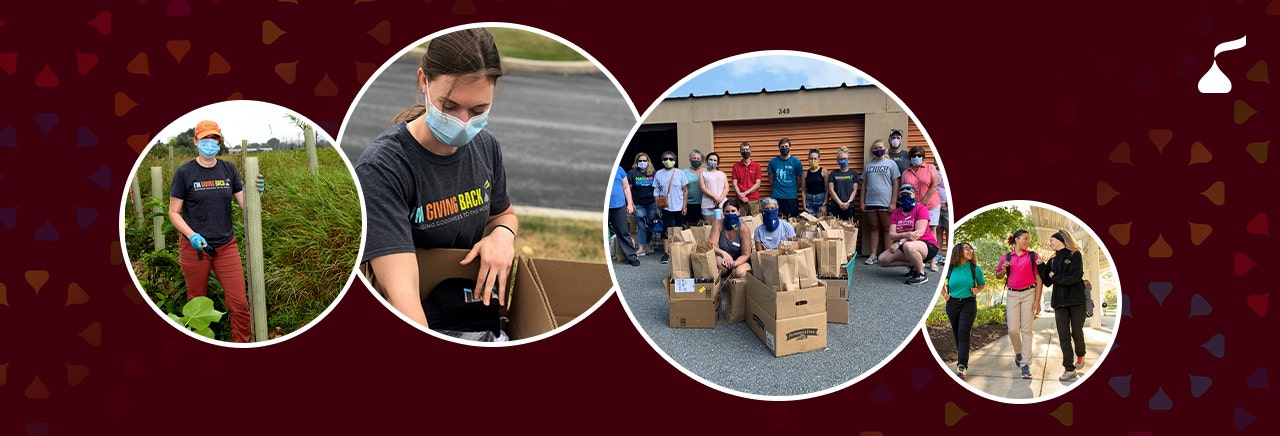Forbes Just 100: Hershey Recognized for Doing Well by Doing Good
Key Takeaways:
- Hershey is proud to announce that we have been named #34 on 2020 Forbes Just 100 list, which ranks American corporations that are trailblazers on issues that matter most to their consumer base.
- 2020 marks not only another year on the Just 100 list, but another year of making progress towards our sustainability goals. In 2012, Hershey committed to ensuring that all our cocoa was 100 percent certified by 2020, and at the beginning of this year, we accomplished this goal.
- As we look to the future, we will continue to foster relationships with our partner organizations, while also pushing forward on our Science Based Targets (SBTs) and protecting our communities and employees from the global pandemic.
The Hershey Company’s legacy is rooted in doing well by doing good. This was the mission of our founder, Milton Hershey, who built a company on the values of integrity, excellence, togetherness and making a difference. That spirit lives on with us today, more than 125 years later.
The Forbes Just 100 list shows that our hard work is being recognized. We are proud to be recognized for the second consecutive year – and to have jumped from #86 last year to #34 this year. The list of 100 corporations ranks publicly traded American companies that are leading the way on issues that Americans care about most.
As part of this year’s Just 100, Hershey celebrates delivering on one of our most important commitments. In 2012, Hershey committed to sourcing 100 percent certified and sustainable cocoa by 2020, and we achieved our goal at the start of this year. We have further committed to expanding our work in cocoa as Hershey committed to 100% direct-sourced cocoa in our high-risk areas by 2025, which includes all of our cocoa sources from suppliers in Cote d’Ivoire and Ghana. This provides us with more transparency into our supply chain for our consumers and stakeholders and enables us to expand our Child Labor Monitoring and Remediation Systems to assess more than 125,000 children and provide remediation, such as providing birth certificates so children stay in school.
This work is part of Hershey’s long-term and comprehensive investment in the most vulnerable cocoa-farming communities to build their capability and resilience, encourage women to share their voice, provide increased opportunities for young people, and diversify incomes to increase quality of life. We certainly are not doing this work alone. It is only by working with our partners that we can make an impact, and we are proud to be working with partners on areas such as:
Nourishing Children: Global Alliance for Improved Nutrition (GAIN), Helen Keller Foundation, Project Peanut Butter, The Sustainable Trade Initiative (IDH) and Transforming Education in Cocoa Communities (TRECC)
Empowering Youth: Aflatoun and Inades, CARE International, International Cocoa Initiative (ICI) and TRECC
Prospering Communities: Bill & Melinda Gates Foundation, CARE, ICI and USAID
Preserving Ecosystems: Cocoa & Forests Initiative (CFI), Impactum, Nature Conversation Research Centre, PUR Projet and USAID
Hershey has also committed to Human Rights with our first Human Rights Policy which guides how we operate our business now and into the future. This is a key focus area for us and more relevant than ever during this pandemic and its impact around the world. As a means to ensure human rights are protected in our palm oil supply chain, Hershey launched a grievance process that is transparent, responsive and effective for stakeholders to raise grievances that are in direct violation of our Palm Policy. To be transparent, all grievances that have been logged can be found on our Palm Oil website.
Amplified by the events of 2020, systemic racism and racial inequality are also at the top of the list of most critical issues facing our generation and our country. Our values of togetherness, integrity, making a difference and excellence and our unique Hershey culture, have guided us to co-create an inclusive work environment. We know, however, that we have more work to do with room to improve and grow. We have increased attention on advancing equity for Black and Brown colleagues and the broader community and have engaged a diverse group of employees across every part of the business to refresh our diversity and inclusion strategy to make it more actionable and part of our daily work.
The safety and well-being of our employees is always paramount. During the coronavirus pandemic, we implemented new programs including incentive pay for our retail and manufacturing teams and increased safety protocols, such as remote work capabilities where possible, for our employees around the world. In line with our legacy of responding to the needs of our communities, we sprung to action to open new production lines to create personal protective equipment (PPE) for our employees, their families and our communities at large.
Hershey also is deeply committed to addressing climate change and the increasing risk it poses to our planet and to our business. Hershey has been working to reduce our greenhouse gas emissions (GHG) for a decade. More recently, Hershey committed to the Science Based Targets Initiative (SBTi) in January 2019, and we are working to set a science-based greenhouse gas reduction goal by January 2021. This is challenging but important work and one of the biggest issues of our generation.
Hershey will continue to be a company that people can depend on to operate in a “just” way. We are not only working toward a more sustainable future, but as a company, people can trust that when we make a commitment, we see that commitment through.
